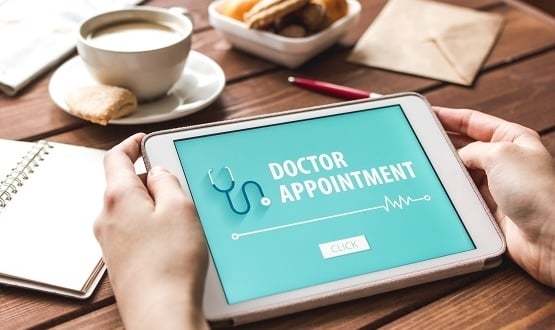The NHS should continue to invest in digital primary care services but more research is needed to understand the impact remote consultations have on care, the Health Foundation has said.
The independent charity has commissioned further research to inform the longer-term stability of video consultations, including the circumstances which would prevent a patient from using the service.
Analysing the use of askmyGP during the Covid-19 outbreak, an NHS-approved remote consultation provider used in 51 GP practices, the Health Foundation found practices already familiar with conducting appointments digitally were better able to adapt to the demands of coronavirus.
Those practices were able to “undertake more care remotely without significantly impacting the total number of consultations delivered”, the analysis found.
Continued investment in digital services would “make primary care more resilient to future waves of the virus” but more research is required to answer questions about the impact of remote consultations, it found.
The data
Between March and June there were fewer consultations for younger patients compared to the same period last year, according to data from askmyGP.
In the same period, consultations for patients aged 75 and over increased by 9%. This may reflect that older patients are more concerned about their increased risk of Covid-19, the Health Foundation found.
Overall, the average consultation rate per person per in in askmyGP practices reduced from 3.26 to 3.25, or 1%, from March to June 2019 and the same period in 2020.
Nationally, and including other providers, reports suggest GP appointments have fallen up to 33% at the pandemics peak in April and May, but more comprehensive data is still needed.
For example, this data may not include other kinds of appointments taking place, such as in hubs, or telephone triage.
“Patient groups responded differently during the early months of the pandemic. Younger patients had fewer appointments, and, regardless of the reasons, may not have had all the care they needed,” the analysis states.
“Older patients had more appointments and may have benefitted from the use of remote consultations for management of long-term conditions.
“More studies are required to answer questions about the impact of remote consultation on quality of care, patient experience and access. Understanding the implications for practice workload will also be critical.”
The bigger picture
The Health Foundations calls for greater investment in digital primary care services follow similar appeals from the Royal College of GPs (RCGP).
The RCGPs acknowledged the “remarkable” role technology has played during the pandemic and said government should invest in, and scale up, the use of telehealth tools to support remote monitoring, digital consultations, and collaboration, in it’s report on general practice post-Covid.
The adoption of digital tools was “significantly accelerated” during the pandemic. More than 70% of GP consultations in England were carried out face-to-face prior to the Covid-19 outbreak but within weeks the figure was 23%, RCGP figures show.
As the use of digital services skyrocketed Digital Health News asked a number of suppliers how patient’s have been using their services since the start of the pandemic. We found text and telephone consultations proved more popular than video consultations – you can read more on that here.


5 August 2020 @ 13:06
and part of the answer may lie in the sentence about telephone triage – and the patient who gets directed elsewhere within the practice or otherwise, by a practice or a PCN. Who follows up on those diversions and the patients involved on a short or long term basis? Are they recorded and the interaction checked? (I am a PPG rep and only a patient)
5 August 2020 @ 12:08
The research should include the impact on GPs, who can be exhausted after a day sitting in front of a lap top and only seeing the occasional patient. I know of at least two who are considering leaving.